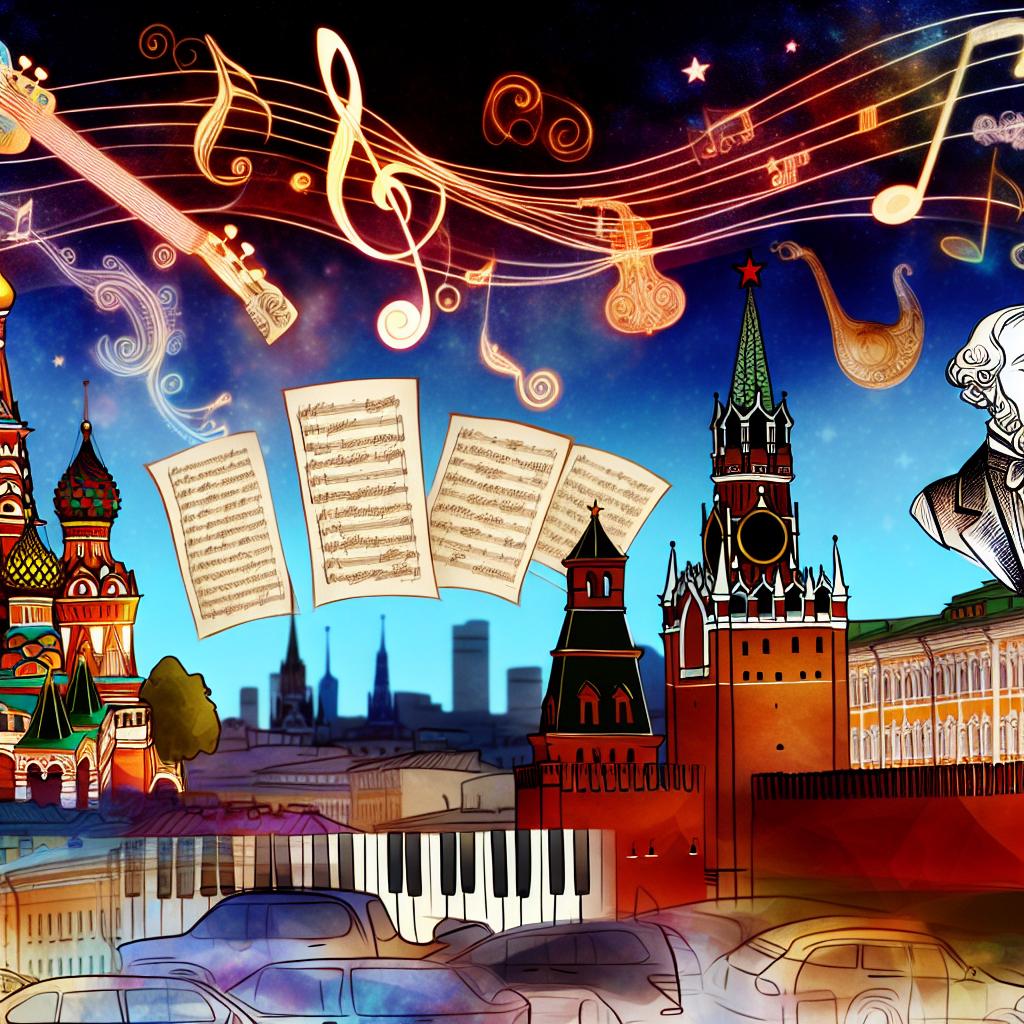The Influence of Moscow on Classical Russian Music
The city of Moscow has exerted a significant influence on the development and evolution of classical Russian music. As the capital city of Russia, Moscow stands at the forefront of cultural and artistic advancements. It has nurtured an environment conducive to the growth of some of the most esteemed composers and musicians in Russian history. This influence is manifest in various factors, including the foundation of leading musical institutions, the support from prominent patrons, and its critical role as a hub where diverse ideas converge and flourish.
Development of Major Musical Institutions
Moscow’s foundation of distinguished musical establishments has been instrumental in shaping Russia’s classical music landscape. One of the most important of these is the Moscow Conservatory, founded in 1866. The conservatory is renowned for its commitment to nurturing the talents of numerous musicians and composers of note, such as Pyotr Ilyich Tchaikovsky and Sergei Rachmaninoff. The rigorous educational programs offered by the conservatory have contributed significantly to maintaining the high standards that Russian classical music is celebrated for, cultivating generations of musicians who continue to advance the art form.
Beyond serving as a training ground for musicians, the Moscow Conservatory also acts as a cultural touchstone, hosting a variety of performances and events that attract audiences from all over the world. The institution’s impact is evident not only in its alumni but also in its role in fostering a vibrant music culture in Moscow and beyond.
Patronage and Promotion of Music
The role of patrons and promoters in Moscow has been crucial in the evolution of classical music within the city. Throughout Moscow’s history, wealthy benefactors and organizations have played key roles in supporting composers, granting them the opportunity to immerse themselves fully in their creative processes. This support has resulted in the composition of some of the most iconic works in the classical canon.
Patronage has provided a vital foundation for classical music’s thriving future in Moscow, creating a setting where innovation and tradition coexist. This financial and social backing enabled composers to experiment with fresh ideas and explore unconventional techniques, broadening the horizons of Russian classical music.
Cultural Hub and Exchange of Ideas
Moscow’s function as a cultural hub has engendered a rich exchange of musical ideas and practices. Throughout both the 19th and 20th centuries, Moscow attracted a multitude of musicians from across Russia and different parts of the globe, fostering a unique fusion of varied musical traditions. This melding of influences has led to a richer, more diverse Russian classical music scene, one that incorporates elements of Western classical styles while retaining a distinctive Russian character.
The city served not only as a point of convergence for different musical influences but also as a collaborative nexus where musicians could interact, share, and refine their innovations. Through such exchanges, Moscow ensured that its classical music continued to evolve and adapt according to global and regional trends, yet always maintained its unique essence.
The Impact of Political and Social Changes
Political and social upheavals in Moscow have also left significant marks on classical Russian music. The Soviet era, in particular, proved to be a double-edged sword for musicians and composers. On one hand, music functioned as a tool of propaganda, influencing the themes and styles prevalent in compositions of the time. Many composers found themselves navigating a delicate balance between expressing creativity and adhering to the demands of socialist realism prescribed by the government.
Some artists faced censorship and limitations on their creative freedom, while others gained recognition for their works that aligned with state ideologies. Nonetheless, despite these challenges, Moscow’s status as a nucleus for classical music was not diminished. Composers and musicians continued to push the boundaries, producing works that were both innovative and influential within the oppressive climate.
The Continuation of Moscow’s Musical Legacy
Moscow’s influence on Russian classical music did not wane with the end of the Soviet era. Transitioning into the modern age, the city has managed to preserve its rich musical legacy while simultaneously embracing new cultural movements and ideas. Today, Moscow hosts a myriad of music festivals, competitions, and events that celebrate its classical music heritage and introduce contemporary musical expressions. Such activities underscore Moscow’s pivotal role in the propagation and perpetuation of its classical music tradition.
The institutions set up in Moscow also continue to be bastions of musical excellence, adapting their curricula to reflect both classical traditions and contemporary innovations. Students from a diverse range of backgrounds flock to Moscow to learn and engage in its vibrant music scene, ensuring that the city remains a key player in the global arena of classical music.
Conclusion
The multifaceted influence of Moscow on classical Russian music is both deep-rooted and enduring. Through the foundation of esteemed educational institutions, the vital patronage system, the fostering of cultural exchanges, and the city’s resilience amidst shifting political landscapes, Moscow has ensured that it remains a crucial heart of Russian classical music. As Russia continues to evolve, Moscow’s pivotal role in the cultivation and celebration of classical music persists, reinforcing its status as a cultural epicenter within the world of classical music.

